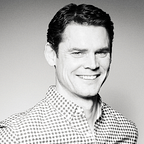What Does It Take To Become a Great Product Manager?
And the the biggest reasons why early-stage companies succeed (and fail)
Julia Austin is a glutton for punishment. A quick scan of her LinkedIn profile reveals she is an investor, board member, or advisor to over a dozen companies — this is in addition to her role as a Senior Lecturer at Harvard Business School. Or it could be that she just really enjoys what she does. Fortunately for these companies and her students, it’s the latter.
Julia highlighted two things that feed her enjoyment of these many roles. One is “adoring the founders and just wanting to see them continue to grow and flourish and achieve their dreams and visions.” The other is being able to impart “I have seen this movie before” experience. Indeed she’s seen many business challenges play out in many companies, and she enjoys being able to discuss the different ways to overcome them with her founders.
She’s also identified some of the most common reasons early-stage companies succeed (and fail).
People
It seems cliché, but the number one thing is the people. If you don’t get the team and the culture right in the beginning, you are likely to fail. “One of my theories is by the first 10 people you’ve nailed your culture, and it pretty much stays that way unless leadership changes or something significant changes.”
The have tos, the want tos, and the good ats
Managing what you have to do, what you want to do, and what you are good at is a critical success factor. There are a bunch of things that just need to get done, and you (as the founder) are probably the one who has to do it. Finance is a great example. There are plenty of technical CEOs or CTOs who own the financials. They don’t love it, and it’s not really what they want to do, but it has to get done.
Similarly, there may be things that you want to do, but you need the self awareness to recognize you should hire someone else to do it. Where this fails is when a founder hires someone for a task, but it’s still “their thing.” So they let the new hire do it but keep undermining or micromanaging the process.
Finally, as a founder, you need to stay true to what you are good at. If you are a “product person” at your core, and you dislike “doing CEO things” (dealing with the board, finances, etc.), then don’t. If you don’t love it you’re allowed to not do it.
Having a Product Vision and Executing On the Roadmap
Of course getting product-market fit right is critical. Really understanding your customers and their needs and not over-architecting or paying too much attention to the competition is important too. But you have to know where you’re going from there — you must have a product vision and a roadmap. Get product-market fit and then execute like mad on the roadmap. She sees a lot of companies fail because the problem(s) they are trying to solve are just too broad. They’re too afraid to focus on one or two things.
Listen to the interview to hear us discuss her article “What It Takes to Become a Great Product Manager.”
Oh yeah, and I almost forgot to mention that Julia’s speaking at UX Fest 2018! Join her and hundreds of thoughtful people just like her by registering now!
